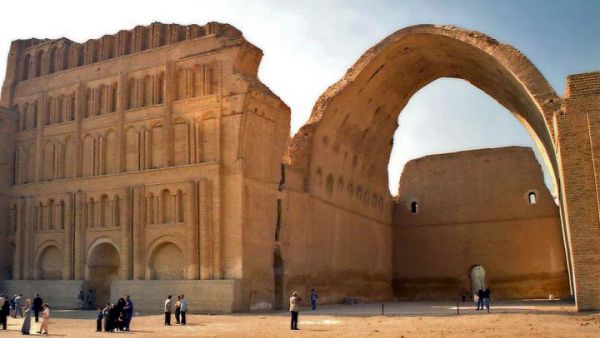A Czech firm will be in charge of a 10-month project to restore the Iraqi Arch of Ctesiphon.
The 6th century monument, which is a major part of the Iraqi cultural heritage, has suffered from decades of war and challenging weather conditions.
Before falling into Al-Qaeda's hands, Madain, the site where the brick-built monument stands, used to be a major touristic attraction.
Everis, the Czech company, will be renovating the site in an effort to boost tourism and hence, the Iraqi economy.
“We began our work here a short while ago, carrying out studies on the site,” the firm’s Iraq manager Imad Abu Aqlam told AFP, adding that surveys are expected to be completed next month.
“The restoration process requires about 10 months - that includes securing the bases of the site, treating the damp, and supporting Taq-i Kisra to ensure that no parts fall off it in the future.”
In 2004, the arch was labeled "in danger of collapse" by the Global Heritage Fund and last year, a two-metres long piece actually fell down from the facade.
“Taq-i-Kisra was neglected for a long time - for four decades - and we decided to rehabilitate it when the piece fell down at the end of last year because of the rains,” Madain’s director of antiquities, Abdulhadi Hassan, said.
“That raised our fears and concerns about this historic site.”
The arch, constructed in 540 AD during the Persian Sassanid dynasty’s long wars with the Byzantine Empire, is the largest brick-built arch in the world.








